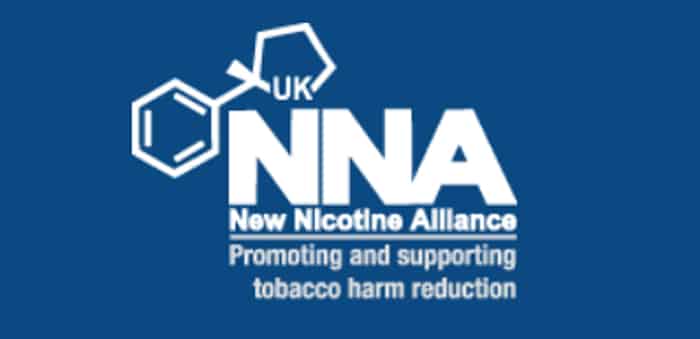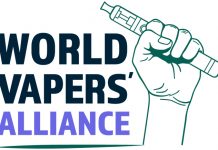The NNA (New Nicotine Alliance) has published their reaction to the news today of the “Swap to Stop” scheme and the updates to the Government Smokefree 2030 proposals.
I have copied the statement in full below.
NNA Statement
The UK government announces new enlightened and proportionate Smokefree 2030 proposals
Created: 11 April 2023
Today, public health minister Neil O’Brien announced a raft of new initiatives to reduce smoking in the UK and prevent adolescents from accessing vaping products. They are designed to accelerate the government’s target of reaching smokefree status by 2030 – defined as smoking prevalence of less than 5% – and will cement the UK’s place as the world leader in recognising tobacco harm reduction as a powerful public health tool.
The measures announced include:
- One million smokers will be given a free vaping starter kit to encourage switching.
- Pregnant women will be offered up to £400 as an incentive to quit smoking.
- £3 million of funding for a vapes enforcement squad led by trading standards to prevent illicit and underage sales of vaping products.
- A call for evidence for further ideas on how to encourage quitting and preventing youth vaping.
- A consultation on introducing mandatory cigarette pack inserts with positive messages and information on quitting smoking.
These proposals – some of which are ground-breaking – are well thought-through and proportionate. The NNA warmly welcomes the government’s approach of embracing reduced risk products for smoking cessation, while also resisting simplistic prohibitive regulations to reduce youth vaping which could do more harm than good.
We are particularly pleased to see that the government is considering cigarette pack inserts which is a policy we have long championed. It would require an amendment to current tobacco packaging regulations but is a common-sense idea which is long overdue. There is no better targeted way to reach people who smoke than by giving them information with the products they buy.
A plan to issue free vaping starter kits will be reassuring to smokers who may have been made wary of vaping previously by alarmist media stories. It is a very welcome endorsement of vaping by the government which will also serve to encourage public health professionals to be more confident in recommending vaping as a first-line option for quitting combustible tobacco use.
Announcing a new “illicit vapes enforcement squad” funded by £3 million from the government, Mr O’Brien made it clear that this is in keeping with a wider plan to reduce smoking going forward. This is an important distinction because an over-reaction to concerns about youth vaping will inevitably reduce the appeal of the products for adults who currently smoke.
The new task force will focus on tackling illicit, unregulated devices which are entering the country and being sold on an underground market, as well as ensuring that retail outlets are not contravening regulatory controls that government has implemented to prevent young people accessing the products.
Trading Standards will be given extra funding to enforce the laws that already exist by working regionally and locally. This is a sensible and proportionate response. This addresses a problem that has prevented activities such as test purchasing to weed out irresponsible sellers. As well as punishing, it will also be used to produce guidance for retailers who do wish to act responsibly to ensure they are aware of regulations and help them to recognise illicit products and remain compliant.
This is a sensible set of measures by the government. Kneejerk proposals such as plain packaging, prohibition of certain products and high taxation would throw the baby out with the bath water and could perpetuate smoking in adults which is orders of magnitude more of a threat to public health. It would also be a backward step in the government’s aim of achieving smokefree status by 2030.
Mr O’Brien also announced a call for evidence on how to “identify opportunities to stop children vaping.” This gives advocates an opportunity to advance our own ideas on how to tackle underage sales which do not reduce appeal and access for adults who currently smoke, such as we have mentioned before.
We hope that the government will use the consultation process to identify other enlightened measures for helping people to quit smoking, rather than resorting to heavy-handed bans and restrictions which are often counterproductive.
We look forward to taking part in the consultation once it is announced and will be advancing our own proposals on boosting tobacco control by considering the full potential of safer nicotine products such as snus, nicotine pouches and heated tobacco alongside vaping products.
To learn more of how we believe tobacco harm reduction can help more smokers quit and contribute to the Smokefree 2030 goal, read the 20 proposals we put forward to the government’s Independent Tobacco Review here.






